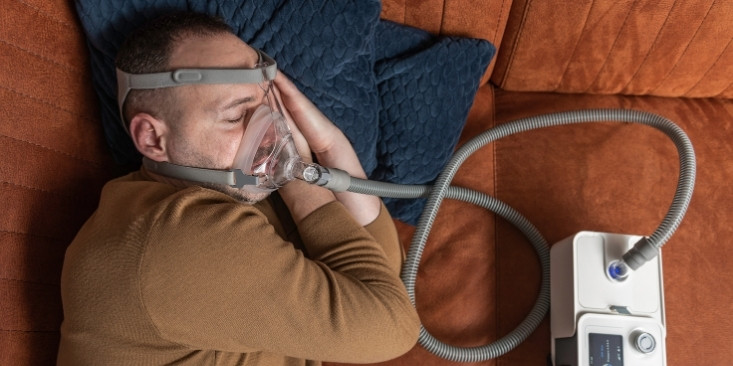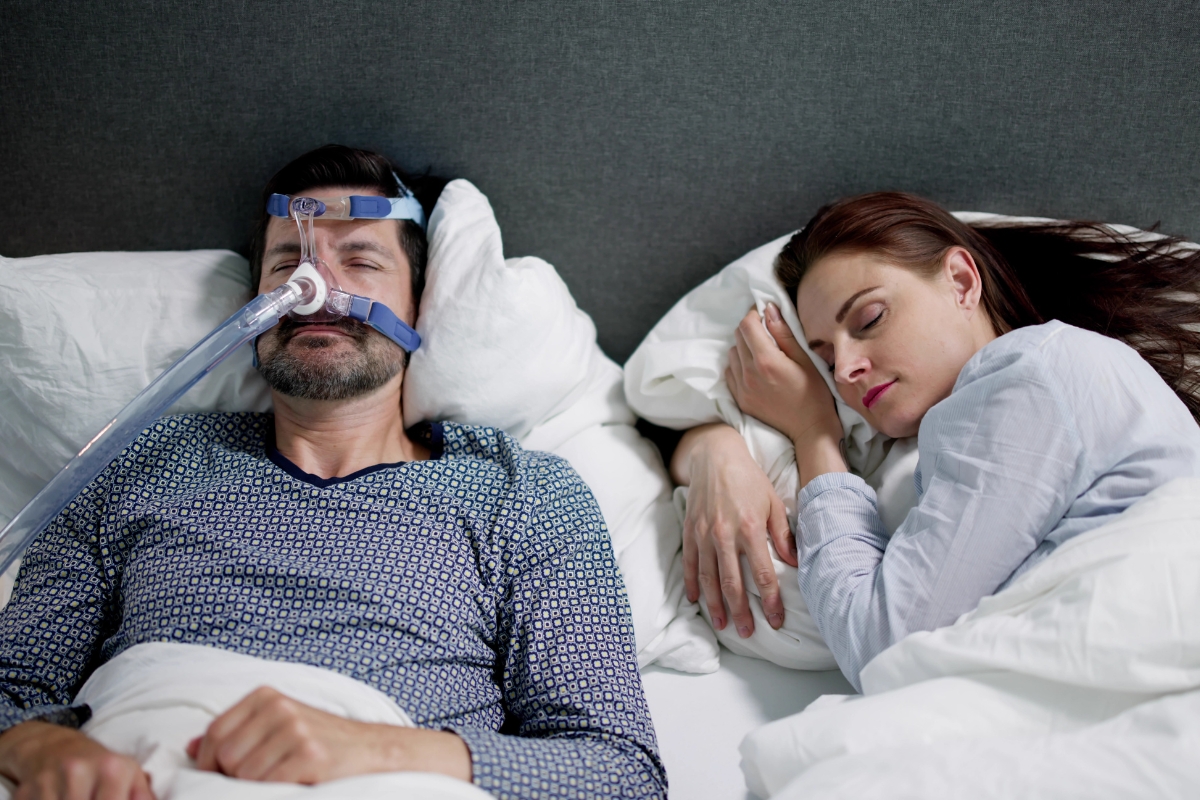Sleep Apnea and Its Impact on Your Gums and Teeth

Did you know that sleep apnea can impact more than just your sleep? It can also harm your gums and teeth. This issue is a common sleep disorder that causes breathing interruptions during sleep. These pauses can last a few seconds to minutes and occur multiple times throughout the night. It affects millions worldwide, often going unnoticed until other health issues arise.
While it’s widely recognized for disturbing sleep, many people don’t realize that this problem can significantly affect oral health. This blog will explore how sleep apnea negatively affects your gums and teeth, shedding light on why it’s crucial to address this condition promptly. Understanding this connection can help you take proactive steps to safeguard your oral health.
What Is Sleep Apnea?
Sleep apnea is when a person’s breathing stops and starts repeatedly during sleep. There are three main types of this issue:
- Obstructive Sleep Apnea (OSA): This is the most common type. It occurs when throat muscles relax and block the upper airway, causing difficulty breathing.
- Central Sleep Apnea: In this type, the brain fails to send proper signals to the muscles that control breathing.
- Complex Sleep Apnea: This is a combination of obstructive and central sleep apnea.
Common sleep apnea symptoms include loud snoring, choking or gasping during sleep, excessive daytime fatigue, and difficulty concentrating. Risk factors include obesity, smoking, alcohol consumption, and a family history of this problem.
Other factors, such as aging, nasal congestion, and anatomical issues, can also contribute to this condition. If left untreated, this issue can lead to serious health complications, including high blood pressure, heart disease, and diabetes.
How Sleep Apnea Affects Your Oral Health?
This issue doesn’t just disrupt your sleep; it can also wreak havoc on your teeth and gums.
Teeth Grinding (Bruxism)
Many people with sleep apnea unconsciously grind their teeth while they sleep. This condition, known as bruxism, is a common response to the stress caused by interrupted breathing.
The grinding action can damage teeth, leading to enamel erosion, tooth sensitivity, and even cracked teeth. Over time, the pressure from grinding can cause permanent damage, leading to costly dental treatments.
Dry Mouth
People with this problem often breathe through their mouths when the airway is blocked during sleep. This leads to dry mouth, worsening gum disease, and increasing the risk of cavities.
Saliva is vital in keeping the mouth moist, washing away food particles, and neutralizing acids. The mouth becomes more vulnerable to plaque buildup, bad breath, and tooth decay without adequate saliva production.
Gum Disease and Inflammation
this issue can increase the risk of gum disease, such as gingivitis and periodontitis. The inflammation caused by poor sleep quality affects the body’s immune response, weakening the gums and making them more susceptible to infection.
Furthermore, the mouth’s dry environment fosters bacteria growth, increasing the likelihood of gum problems.
Jaw and TMJ Pain
Chronic teeth grinding and clenching can lead to jaw pain or temporomandibular joint (TMJ) disorders. The constant pressure on the jaw joints can result in headaches, jaw stiffness, and pain while chewing. This condition can significantly impact daily life and worsen sleep apnea symptoms.
The Connection Between Sleep Apnea and Overall Health
Sleep apnea doesn’t just affect your sleep and oral health; it can impact your entire body. Untreated sleep apnea has been linked to cardiovascular issues such as high blood pressure, heart attack, and stroke. It also increases the risk of developing diabetes, obesity, and other metabolic conditions.
Oral health is strongly connected to overall health. Studies have shown that gum disease and poor oral hygiene are linked to an increased risk of heart disease, diabetes, and respiratory problems. The inflammation caused by this problem can worsen gum disease, leading to a cycle that affects both oral and overall health.
By addressing this problem early, you can prevent complications not only for your teeth and gums but also for your overall well-being.
Preventive Measures and Treatment Options
There are several ways to manage this issue and its impact on oral health.
Lifestyle Changes
Making lifestyle changes can help reduce the severity of sleep apnea. Losing weight, avoiding alcohol before bed, and sleeping on your side can improve airflow and reduce snoring. A consistent sleep routine is also important for improving sleep quality.
Dental Appliances
Dental appliances such as CPAP machines or custom-made dental splints can help manage this problem. CPAP (Continuous Positive Airway Pressure) machines keep the airway open by delivering a constant air stream.
Dental splints, on the other hand, help reposition the jaw to prevent airway obstruction, reducing the risk of teeth grinding.
Regular Dental Checkups
If you suffer from sleep apnea, regular visits to the dentist are crucial. Dentists can monitor the health of your gums and teeth, check for signs of bruxism, and provide treatments to minimize damage. They can also recommend the best dental appliances for your condition.
Oral Hygiene Tips
Proper oral hygiene is essential for those with sleep apnea. Using fluoride toothpaste, drinking plenty of water, and using mouthwash can help combat dry mouth and protect teeth and gums. Regular brushing and flossing will reduce plaque buildup and keep your gums healthy.
Sleep apnea can significantly affect your gums and teeth, leading to conditions like bruxism, dry mouth, gum disease, and jaw pain. Addressing this issue not only improves your quality of sleep but also helps protect your oral health.
If you suspect sleep apnea impacts your teeth or gums, consult our dentists. Taking proactive steps to treat this issue can prevent long-term damage and improve both your oral and overall health. Don’t wait—your teeth and gums will thank you for it.




